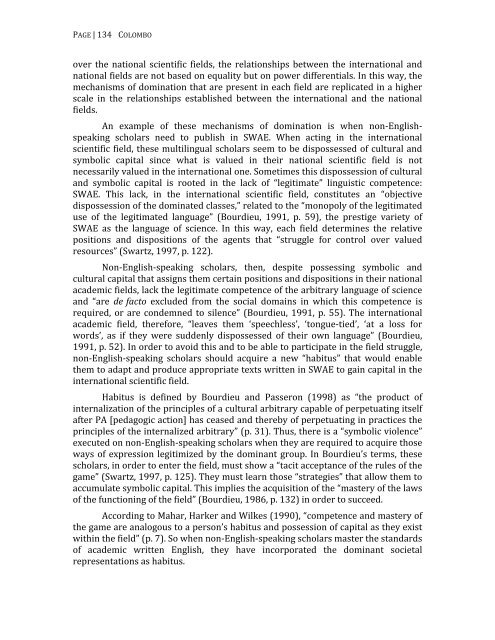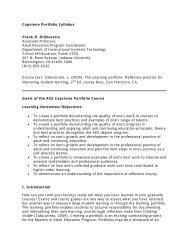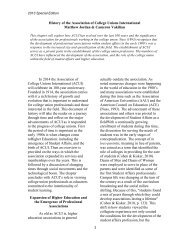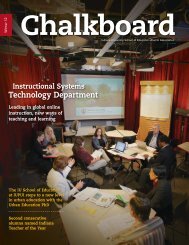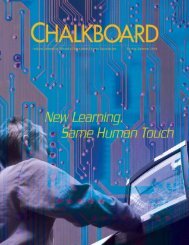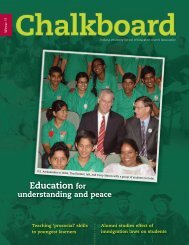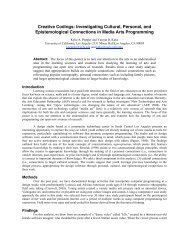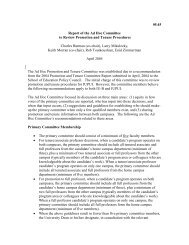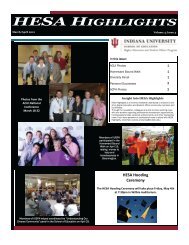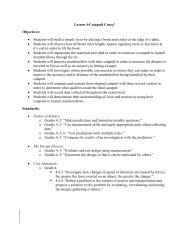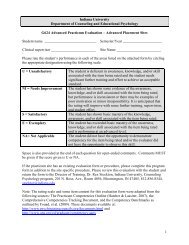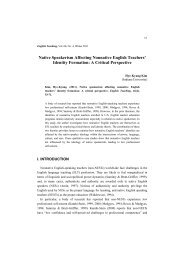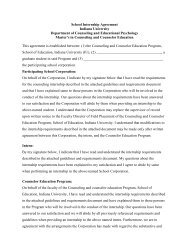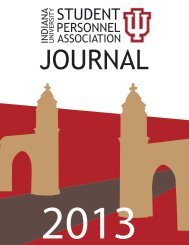Working Papers in Literacy, Culture, and Language Education
Working Papers in Literacy, Culture, and Language Education
Working Papers in Literacy, Culture, and Language Education
Create successful ePaper yourself
Turn your PDF publications into a flip-book with our unique Google optimized e-Paper software.
PAGE | 134COLOMBOover the national scientific fields, the relationships between the <strong>in</strong>ternational <strong>and</strong>national fields are not based on equality but on power differentials. In this way, themechanisms of dom<strong>in</strong>ation that are present <strong>in</strong> each field are replicated <strong>in</strong> a higherscale <strong>in</strong> the relationships established between the <strong>in</strong>ternational <strong>and</strong> the nationalfields.An example of these mechanisms of dom<strong>in</strong>ation is when non‐Englishspeak<strong>in</strong>gscholars need to publish <strong>in</strong> SWAE. When act<strong>in</strong>g <strong>in</strong> the <strong>in</strong>ternationalscientific field, these multil<strong>in</strong>gual scholars seem to be dispossessed of cultural <strong>and</strong>symbolic capital s<strong>in</strong>ce what is valued <strong>in</strong> their national scientific field is notnecessarily valued <strong>in</strong> the <strong>in</strong>ternational one. Sometimes this dispossession of cultural<strong>and</strong> symbolic capital is rooted <strong>in</strong> the lack of “legitimate” l<strong>in</strong>guistic competence:SWAE. This lack, <strong>in</strong> the <strong>in</strong>ternational scientific field, constitutes an “objectivedispossession of the dom<strong>in</strong>ated classes,” related to the “monopoly of the legitimateduse of the legitimated language” (Bourdieu, 1991, p. 59), the prestige variety ofSWAE as the language of science. In this way, each field determ<strong>in</strong>es the relativepositions <strong>and</strong> dispositions of the agents that “struggle for control over valuedresources” (Swartz, 1997, p. 122).Non‐English‐speak<strong>in</strong>g scholars, then, despite possess<strong>in</strong>g symbolic <strong>and</strong>cultural capital that assigns them certa<strong>in</strong> positions <strong>and</strong> dispositions <strong>in</strong> their nationalacademic fields, lack the legitimate competence of the arbitrary language of science<strong>and</strong> “are de facto excluded from the social doma<strong>in</strong>s <strong>in</strong> which this competence isrequired, or are condemned to silence” (Bourdieu, 1991, p. 55). The <strong>in</strong>ternationalacademic field, therefore, “leaves them ‘speechless’, ‘tongue‐tied’, ‘at a loss forwords’, as if they were suddenly dispossessed of their own language” (Bourdieu,1991, p. 52). In order to avoid this <strong>and</strong> to be able to participate <strong>in</strong> the field struggle,non‐English‐speak<strong>in</strong>g scholars should acquire a new “habitus” that would enablethem to adapt <strong>and</strong> produce appropriate texts written <strong>in</strong> SWAE to ga<strong>in</strong> capital <strong>in</strong> the<strong>in</strong>ternational scientific field.Habitus is def<strong>in</strong>ed by Bourdieu <strong>and</strong> Passeron (1998) as “the product of<strong>in</strong>ternalization of the pr<strong>in</strong>ciples of a cultural arbitrary capable of perpetuat<strong>in</strong>g itselfafter PA [pedagogic action] has ceased <strong>and</strong> thereby of perpetuat<strong>in</strong>g <strong>in</strong> practices thepr<strong>in</strong>ciples of the <strong>in</strong>ternalized arbitrary” (p. 31). Thus, there is a “symbolic violence”executed on non‐English‐speak<strong>in</strong>g scholars when they are required to acquire thoseways of expression legitimized by the dom<strong>in</strong>ant group. In Bourdieu’s terms, thesescholars, <strong>in</strong> order to enter the field, must show a “tacit acceptance of the rules of thegame” (Swartz, 1997, p. 125). They must learn those “strategies” that allow them toaccumulate symbolic capital. This implies the acquisition of the “mastery of the lawsof the function<strong>in</strong>g of the field” (Bourdieu, 1986, p. 132) <strong>in</strong> order to succeed.Accord<strong>in</strong>g to Mahar, Harker <strong>and</strong> Wilkes (1990), “competence <strong>and</strong> mastery ofthe game are analogous to a person’s habitus <strong>and</strong> possession of capital as they existwith<strong>in</strong> the field” (p. 7). So when non‐English‐speak<strong>in</strong>g scholars master the st<strong>and</strong>ardsof academic written English, they have <strong>in</strong>corporated the dom<strong>in</strong>ant societalrepresentations as habitus.


